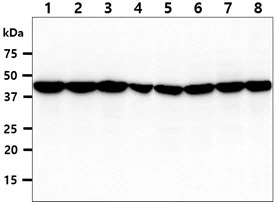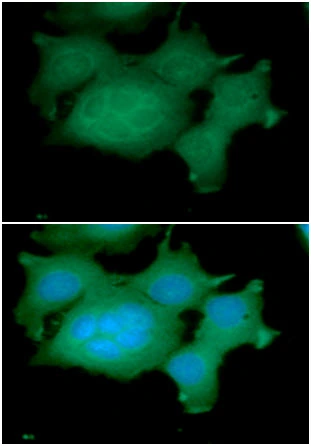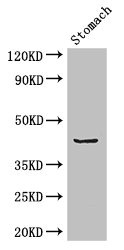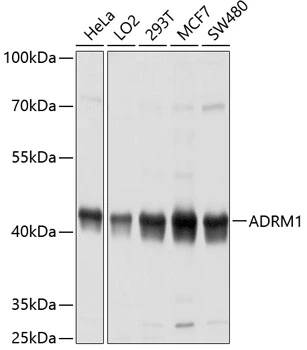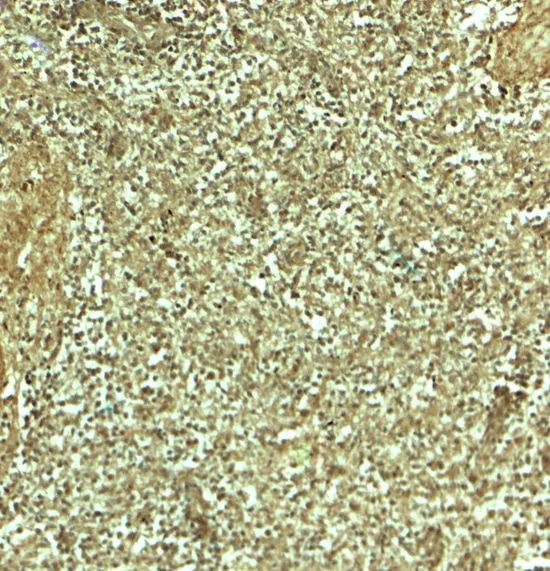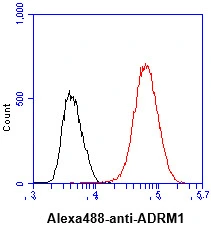
FACS analysis of MCF7 cells using GTX57566 ADRM1 antibody. Cell Number: 1 x 10? cells Primary antibody: Red line Antibody amount: 2-5 μg
ADRM1 antibody [AT34C2]
GTX57566
ApplicationsFlow Cytometry, ImmunoFluorescence, Western Blot, ImmunoCytoChemistry
Product group Antibodies
ReactivityHuman
TargetADRM1
Overview
- SupplierGeneTex
- Product NameADRM1 antibody [AT34C2]
- Delivery Days Customer9
- ApplicationsFlow Cytometry, ImmunoFluorescence, Western Blot, ImmunoCytoChemistry
- CertificationResearch Use Only
- ClonalityMonoclonal
- Clone IDAT34C2
- Concentration1 mg/ml
- ConjugateUnconjugated
- Gene ID11047
- Target nameADRM1
- Target descriptionADRM1 26S proteasome ubiquitin receptor
- Target synonymsARM-1, ARM1, GP110, PSMD16, proteasomal ubiquitin receptor ADRM1, 110 kDa cell membrane glycoprotein, M(r) 110,000 surface antigen, adhesion regulating molecule 1, proteasome regulatory particle non-ATPase 13, proteasome ubiquitin receptor, rpn13 homolog
- HostMouse
- IsotypeIgG2b
- Protein IDQ16186
- Protein NameProteasomal ubiquitin receptor ADRM1
- Scientific DescriptionThis gene encodes a member of the adhesion regulating molecule 1 protein family. The encoded protein is a component of the proteasome where it acts as a ubiquitin receptor and recruits the deubiquitinating enzyme, ubiquitin carboxyl-terminal hydrolase L5. Increased levels of the encoded protein are associated with increased cell adhesion, which is likely an indirect effect of this intracellular protein. Dysregulation of this gene has been implicated in carcinogenesis. Alternative splicing results in multiple transcript variants. [provided by RefSeq, Jul 2013]
- ReactivityHuman
- Storage Instruction-20°C or -80°C,2°C to 8°C
- UNSPSC41116161

